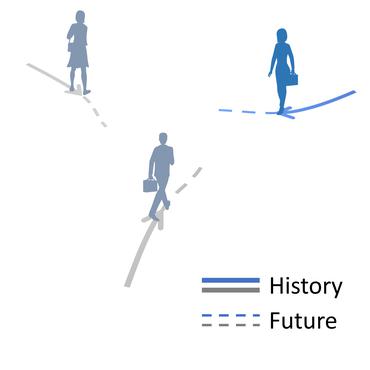Imitative Non-Autoregressive Modeling for Trajectory Forecasting and Imputation
Trajectory forecasting and imputation are pivotal steps towards understanding the movement of human and objects, which are quite challenging since the future trajectories and missing values in a temporal sequence are full of uncertainties, and the spatial-temporally contextual correlation is hard to model. Yet, the relevance between sequence prediction and imputation is disregarded by existing approaches. To this end, we propose a novel imitative non-autoregressive modeling method to simultaneously handle the trajectory prediction task and the missing value imputation task. Specifically, our framework adopts an imitation learning paradigm, which contains a recurrent conditional variational autoencoder (RC-VAE) as a demonstrator, and a non-autoregressive transformation model (NART) as a learner. By jointly optimizing the two models, RC-VAE can predict the future trajectory and capture the temporal relationship in the sequence to supervise the NART learner. As a result, NART learns from the demonstrator and imputes the missing value in a non autoregressive strategy. We conduct extensive experiments on three popular datasets, and the results show that our model achieves state-of-the-art performance across all the datasets.
PDF Abstract


